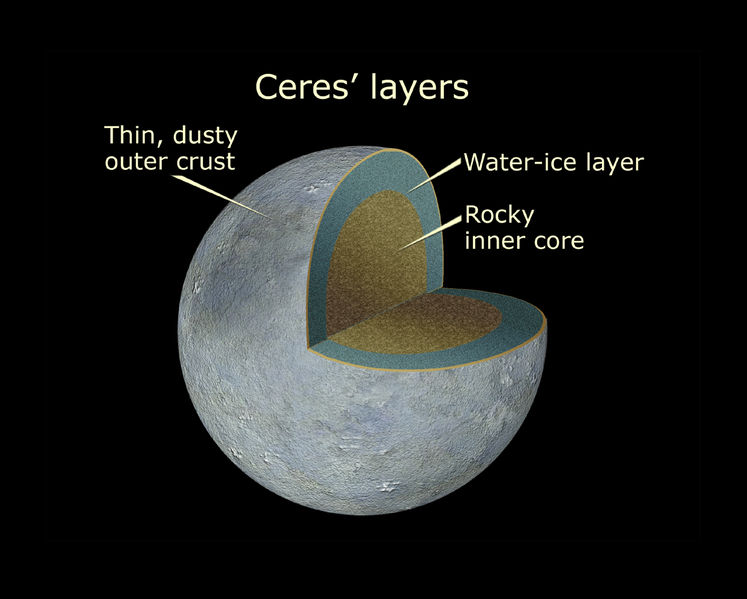Gambar:Ceres Cutaway.jpg

Ukuran ieu pramidang: 747 × 599 pixel. Resolusi lianna: 299 × 240 pixel | 598 × 480 pixel | 957 × 768 pixel | 1.200 × 963 pixel.
Berkas asli (1.200 × 963 piksel, ukuran koropak: 358 KB, tipeu MIME: image/jpeg)
Jujutan berkas
Klik dina titimangsa pikeun nempo koropak nu aya dina mangsa éta.
| Titimangsa | Miniatur | Ukuran | Pamaké | Kamandang | |
|---|---|---|---|---|---|
| kiwari | 9 Séptémber 2005 17.09 |  | 1.200 × 963 (358 KB) | Startaq | |
| 9 Séptémber 2005 13.46 |  | 800 × 600 (37 KB) | Vesta~commonswiki | {{Information| |Description = Cutaway view of asteroid 1 Ceres. Observations of 1 Ceres, the largest known asteroid, have revealed that the object may be a "mini planet," and may contain large amounts of pure water ice beneath its surface. The observation |
Pamakéan berkas
Euweuh kaca anu maké ieu berkas.
Pamakéan berkas sajagat
Wiki lianna anu maké ieu berkas:
- Pamakéan di als.wikipedia.org
- Pamakéan di ast.wikipedia.org
- Pamakéan di bg.wikipedia.org
- Pamakéan di de.wiktionary.org
- Pamakéan di en.wikiversity.org
- Pamakéan di fi.wikipedia.org
- Pamakéan di fr.wikipedia.org
- Pamakéan di hu.wikipedia.org
- Pamakéan di id.wikipedia.org
- Pamakéan di ko.wikipedia.org
- Pamakéan di nds.wikipedia.org
- Pamakéan di nl.wikipedia.org
- Pamakéan di nl.wikibooks.org
- Pamakéan di no.wikipedia.org
- Pamakéan di pl.wikipedia.org
- Pamakéan di pnb.wikipedia.org
- Pamakéan di pt.wikipedia.org
- Pamakéan di ro.wikipedia.org
- Pamakéan di tl.wikipedia.org
- Pamakéan di ug.wikipedia.org
- Pamakéan di ur.wikipedia.org
- Pamakéan di zh.wikipedia.org









